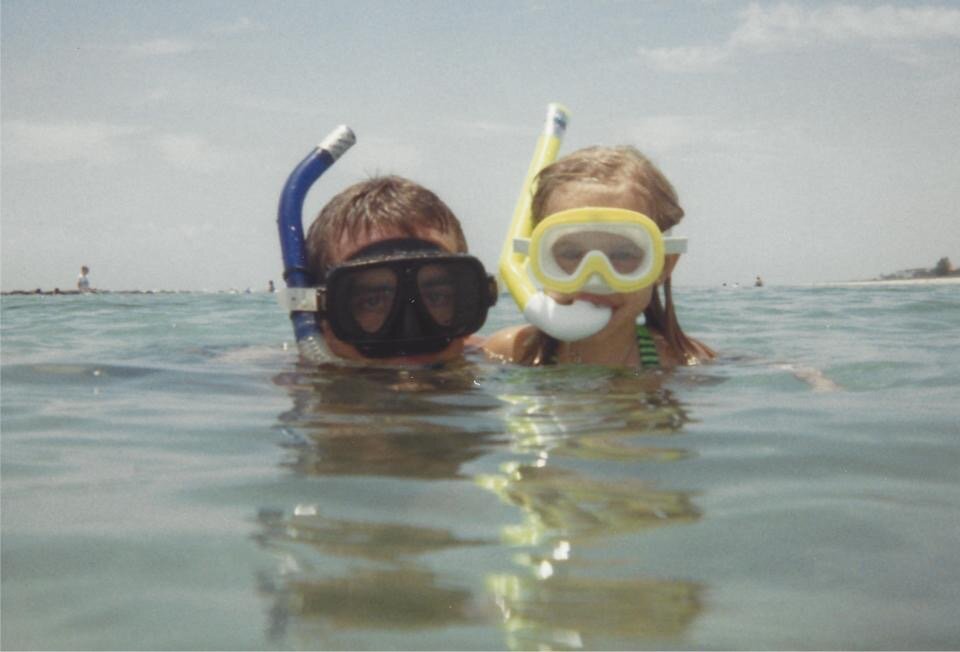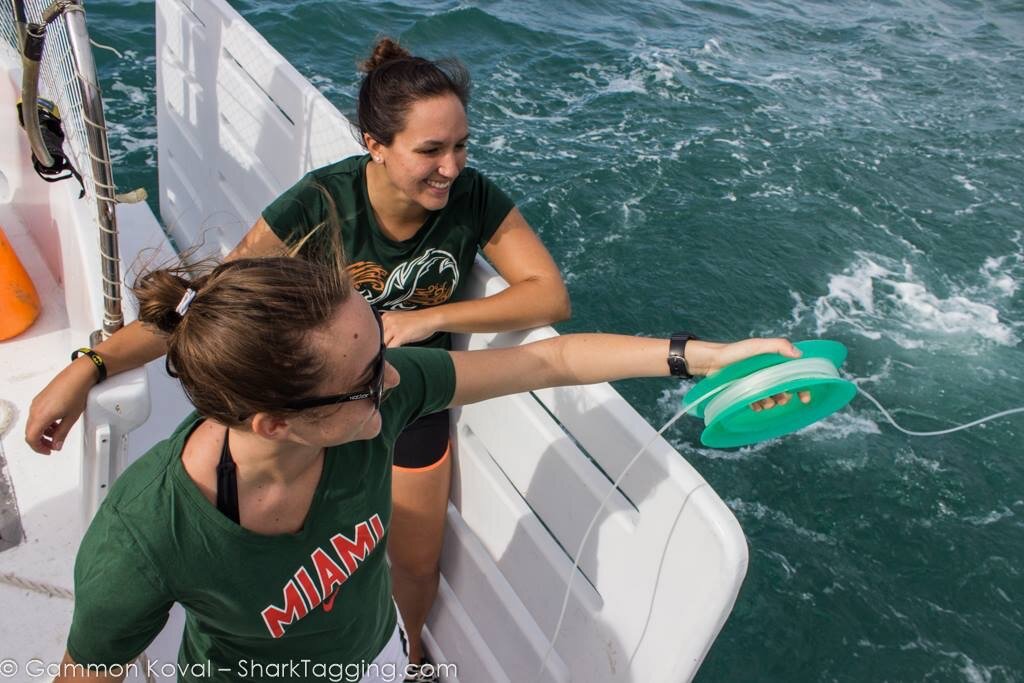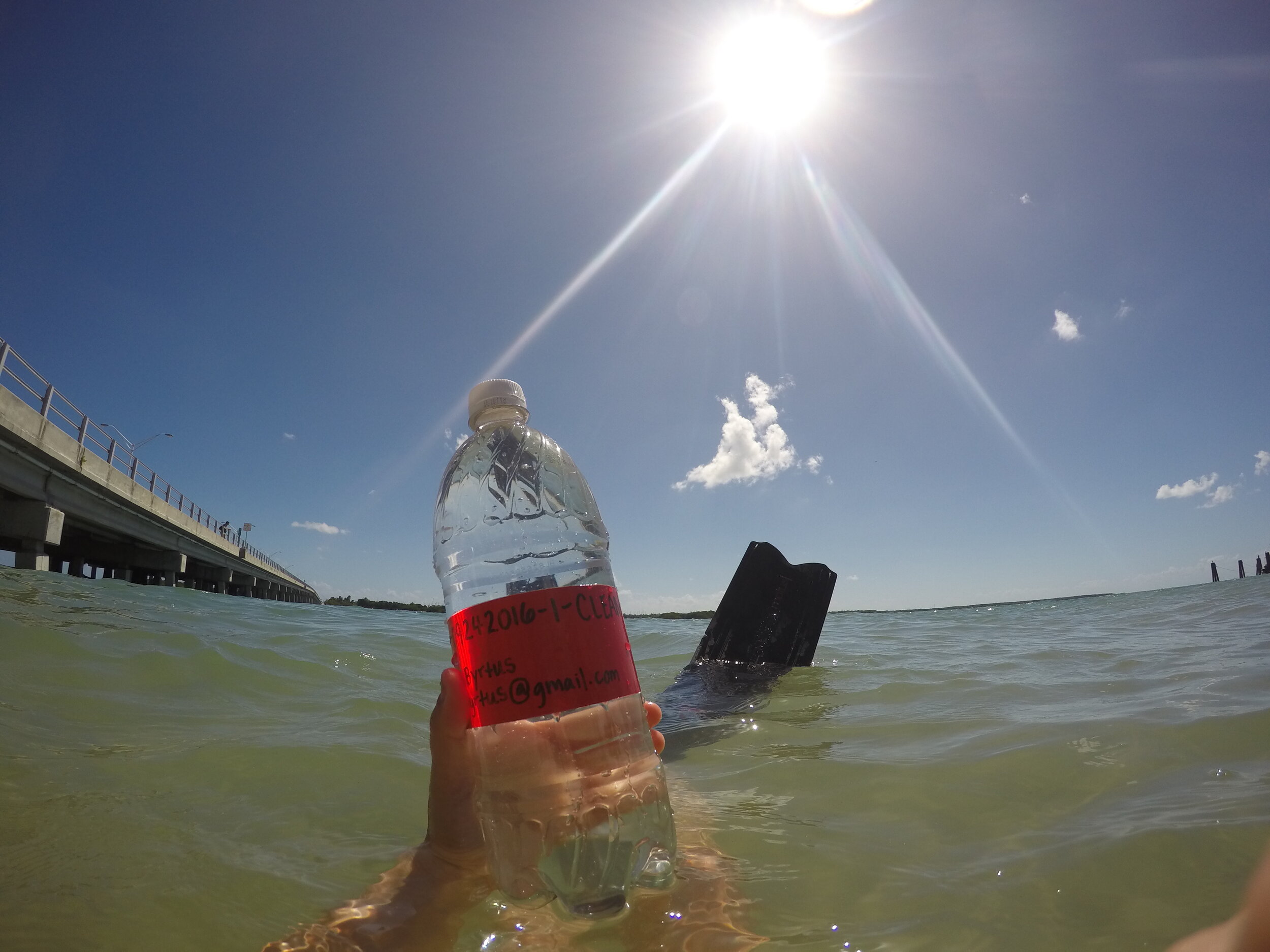Exploration and Citizen Science in Ocean Conservation
Malia Byrtus
When we are children, our imaginations take us to far away places where anything is possible. When I was growing up in Florida, my imagination took me to the ocean. Lucky for me, this was somewhere not so far away. I remember snorkeling with my dad at the age of five and imagining I was a fish just like the ones I saw swimming around me. What must it be like to have the entire ocean to explore, I’d ask myself. After diving into what felt like a whole new world, I was forever hooked in by the beauty and mystery of Mother Ocean. But more than that, I craved the feeling of physically connecting with the natural world by making myself a part of it.
As I grew older I spent more and more of my time exploring the outdoors - surfing my home break, paddling mangrove forests in the Indian River Lagoon, and freediving my state’s magnificent coral reefs and freshwater springs. This obsession for exploration fueled a fire within me to protect the places I grew to know and love. I soon realized after college that the best way for me to do that was by rallying advocates around the outdoors and involving others in important research and conservation projects that allowed them to be explorers too. Today, I am a conservation communicator and exploration scientist focused on community engagement.
As a conservation communicator, my biggest hope is to get people hooked on nature just like I got the first time I went snorkeling. I believe that by making science and conservation exciting and inclusive, it can become a lifelong adventure people will embark on. I discovered that by using “Citizen Science” I could do just that. Citizen science is community-driven research or investigation. It incorporates public involvement and unites scientists with volunteers who have diverse skill sets, backgrounds, and knowledge. This practice extends across all disciplines, but is especially useful for marine research. Think about it; the ocean is vast. Issues like microplastics, coral bleaching, and overfishing are present across the globe and reach every coastline. This can make sampling and data collection challenging for scientists with limited time, resources, or reach. With help and assistance from volunteers across the globe, there is no limit to questions we can ask or solutions we can find as a collective. It can be applied both in the field and online; through both local and global efforts. That is my favorite part…anyone anywhere can get involved. An online example includes Global Fishing Watch created in collaboration with Oceana. Using advanced satellite technology, anyone can monitor commercial fishing activity by identifying suspicious vessels and reporting them to the authorities. With the help of online users, important marine ecosystems can be protected by helping enforcement agencies prioritize problem areas and vessels of concern, help to deter illegal fishing and reduce overfishing, and facilitate transparency and honesty in seafood supply chains.
There are incredible field-based citizen science projects I have been a part of as both a scientist and a concerned citizen. The first is with an organization called Reef Check Worldwide. Organized through different chapters, their network of certified EcoDivers conduct over 600 surveys annually to monitor the health of coral reefs across 40 different countries. Certified scuba divers can explore the world’s unique reef ecosystems while also conducting full-scale surveys and collecting high-quality data for a global database. By incorporating training and certification for volunteers in the EcoDiver program, this provides volunteers with experience that can improve their diving skills but also set them up for future careers in marine science. By including volunteers in real field-based research where they actually get their feet (and in this case entire bodies) wet, volunteers are able to feel that sense of physically connecting with the nature around them and allowing themselves to become a part of it. I took part in their Tropical EcoDiver program surveying reefs throughout south Florida and the Bahamas. Diving beneath the surface with my clipboard and waterproof paper, I recorded key indicator fish, invertebrates, and substrates selected by Reef Check for assessing coral reef health. And the coolest part? The data you collect is analyzed and used locally by marine park managers, nationally by fisheries and environment managers, and internationally by organizations including United Nations agencies to help better track and care for coral reefs.
While earning my masters degree at the University of Miami’s Rosenstiel School of Marine & Atmospheric Science, I found myself surrounded by opportunities to be involved in local conservation projects. My colleagues in the Shark Research & Conservation Program (SRC), for example, conduct cutting-edge shark research while also inspiring scientific literacy and environmental ethic in youth through unique hands-on field research experiences. Students and volunteers embark on expeditions into Key Biscayne and offshore, participating in data collection and hands-on interaction with sharks. Participants can learn and partake in a variety of research techniques: taking fin clips, tagging the sharks, or taking shark length measurements. I was able to participate as a student by assisting my fellow colleagues in their own research. I helped by deploying and retrieving fishing gear, in addition to pulling in sharks that needed to be tagged. Having spent most of my life in and around the ocean, I felt fairly confident and comfortable around sharks. But onboard the vessel were also students seeing sharks up close for the very first time. Engaging with top ocean predators in a safe, ethical , and positive setting such as this increased appreciation and understanding of the sharks’ role in the marine ecosystem.
By far my favorite organization to collaborate with as a citizen scientist has been Adventure Scientists based in Bozeman, Montana. You might be thinking to yourself, how is an organization in Montana helping the ocean? Adventure Scientists connect scientific researchers from every corner of the country with volunteers who have strong outdoor exploration skills that assist by collecting data in hard to reach places across the globe. From 2013-2017, Adventure Scientists mobilized thousands of trained volunteers to help identify the extent of microplastic pollution in both marine and freshwater systems. Adventurers and explorers like myself used their outdoor experience and hobbies like fly fishing, kayaking, or sailing to get them places where data otherwise could not be collected. The organization’s dataset represents the most diverse and one of the largest datasets exposing the extent of microplastic pollution around the world. I participated by collecting water samples on both surf and freedive trips in marine and intercoastal areas within south Florida; some right in my own neighborhood. At the end of the project the results showed that globally, microplastics are accumulating at a higher rate in marine systems with 89% of samples containing microplastic pollution. These results accumulated from 1,058 volunteer-led expeditions and 2,677 water samples have already inspired businesses to reduce their plastic consumption, is now being used by governments towards conservation decision making, and has motivated over 80% of volunteers into taking action towards reducing plastic pollution.
Each of these three projects are proof that real change can occur when you bring everyone onboard; literally. When members of the public are engaged in the scientific process, they have a voice that can encourage policy makers and businesses to make changes that have lasting impact. There are so many ways in which citizen science can be used for good. Through the right training and easy to learn protocols, projects can provide the right experience to inspire the next generation of scientists, explorers, and ocean advocates. By providing opportunities for people to engage with nature through hands-on research and outdoor exploration, people from all walks of life can gain a greater appreciation and understanding of the environments and species around them. Lastly, the intersection of science and exploration creates an unforgettable feeling of connection where you not only know more about the world around you but you now feel everything happening to it too, igniting that fire to protect it.
I believe anyone can be a scientist, explorer, or conservationist. You don’t need to have a resume or degree to do so. All you have to do is discover your unique skill set and interests to navigate how you can best participate. To get involved, I suggest you begin looking for opportunities near where you live. Check out local environmental organizations that have volunteer programs. You’d be surprised how many people are working on projects to protect the wild areas around your own community. Other places to look for citizen science opportunities are the citizenscience.gov and scistarter.org websites. Both are excellent resources for discovering field-based and online projects around the globe looking for volunteers just like you. Once you dive in, I promise it won’t be long until you are hooked.





